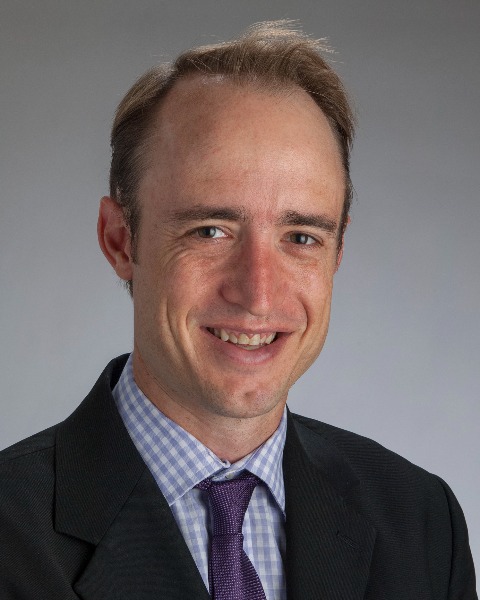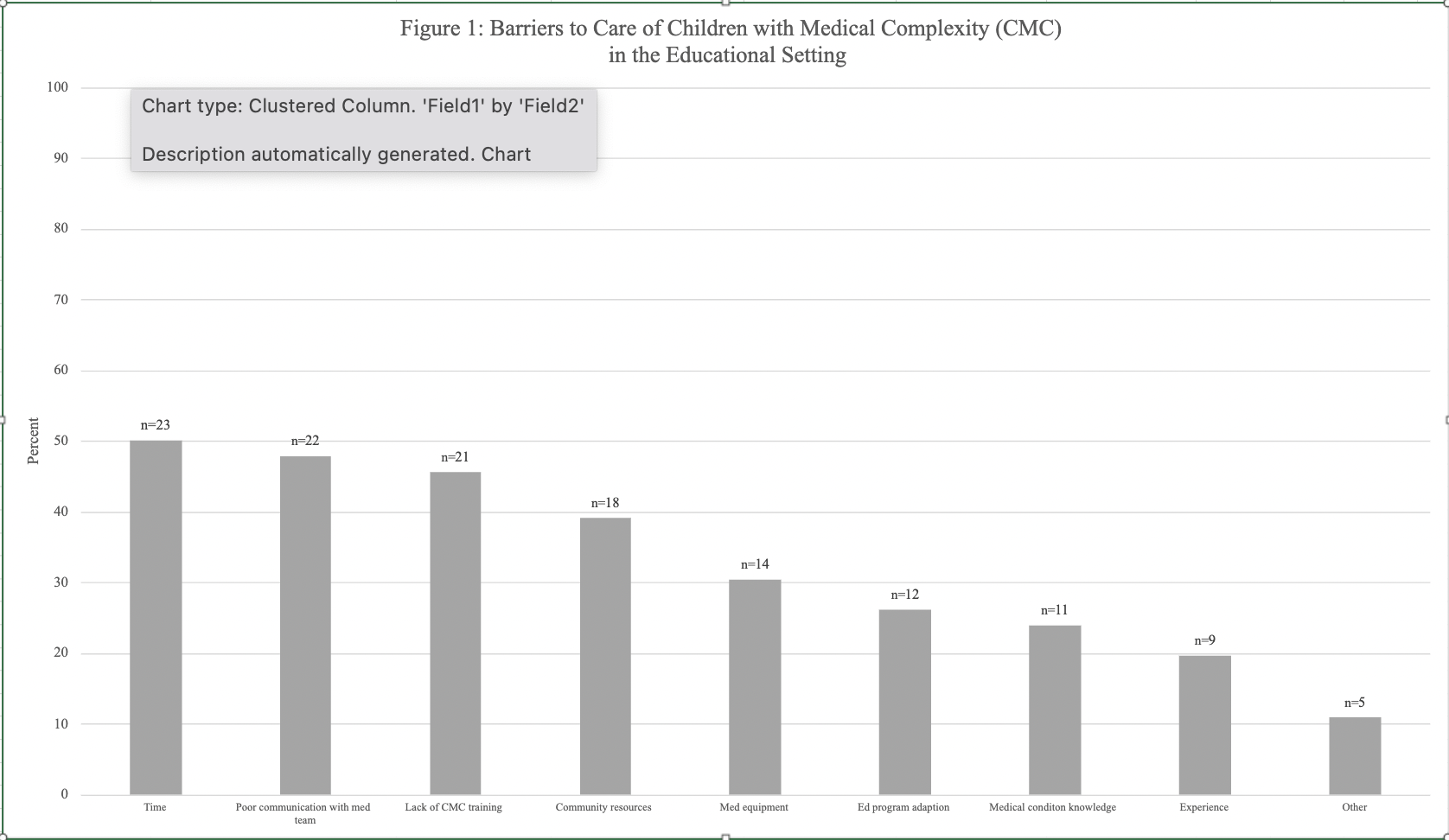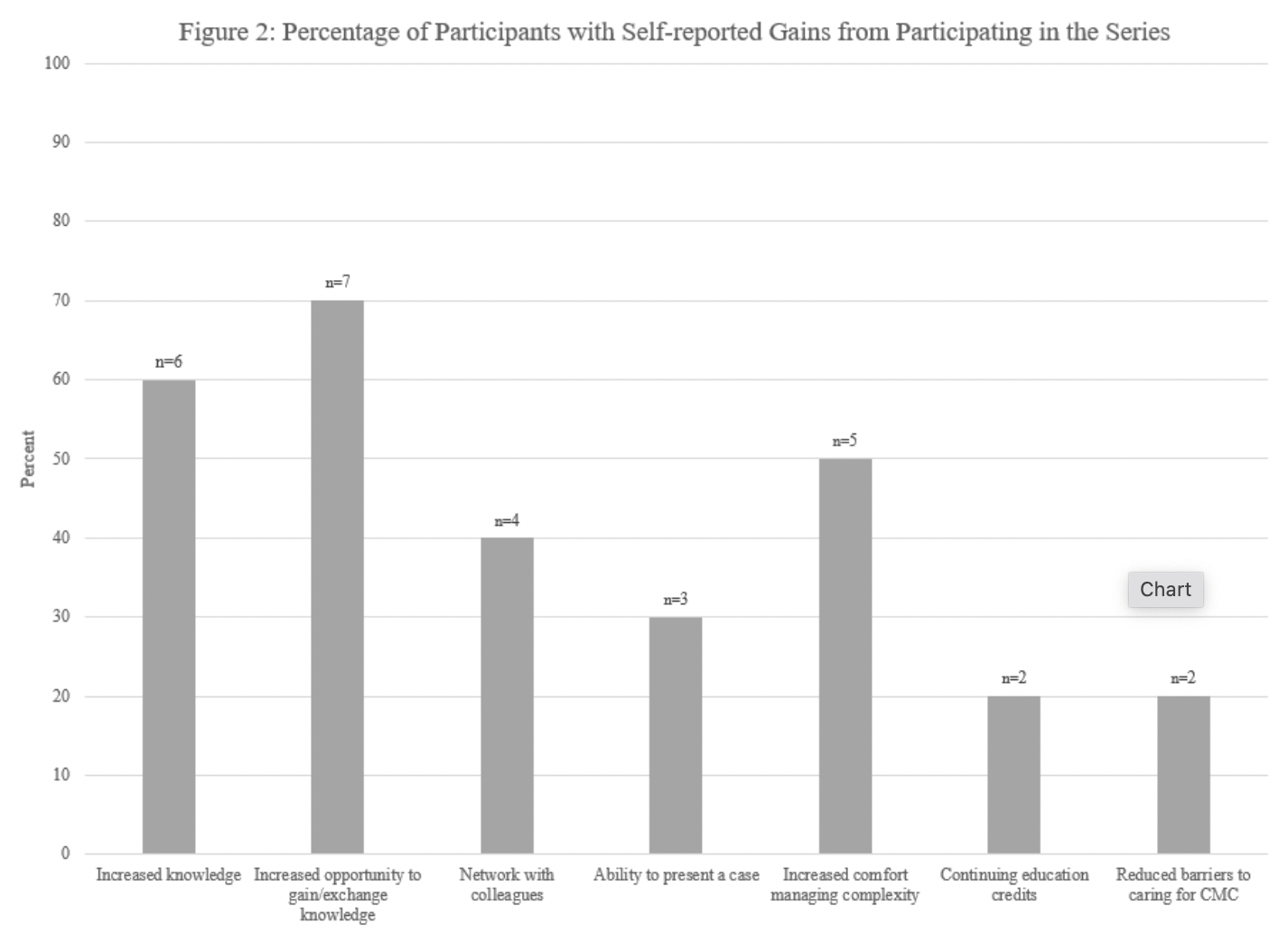Children with Chronic Conditions
Category: Abstract Submission
Children with Chronic Conditions IV
608 - Impact of an educational series on care of children with medical complexity for school personnel
Monday, April 25, 2022
3:30 PM - 6:00 PM US MT
Poster Number: 608
Timothy R. Smith, University of Kansas School of Medicine, Kansas City, MO, United States; Emily J. Goodwin, Children's Mercy Kansas City, Kansas City, MO, United States; Dana Bakula, Children's Mercy Hospitals and Clinics, Kansas City, MO, United States; Eve-Lynn Nelson, KUMC, Kansas City, KS, United States

Timothy Ryan Smith, MD
Associate Professor
University of Kansas School of Medicine
Kansas City, Missouri, United States
Presenting Author(s)
Background: Children with medical complexity (CMC) have multiple chronic health problems, high health care utilization, and face challenges in school settings. Medical emergencies can be challenging for school staff and result in academic interruptions for CMC that may impair their academic development. Extension for Community Health Outcomes (ECHO) is an evidence-based, collaborative educational approach to train health care providers who care for CMC; but to our knowledge, has not been used to train school personnel who work with CMC.
Objective: 1)To examine the barriers of caring for CMC in school settings in Kansas (KS) during the pandemic; 2) Assess the feasibility and impact of an ECHO series for care of CMC to a KS school-based audience.
Design/Methods: Funded with support from Kansas Disaster Outreach in Schools (KanDO) Project, we designed and implemented a 4-session ECHO series “All Under One Roof: Caring for children with medical complexity across settings.” We used didactic and case-based learning. Topics included medical emergencies, assistive technology, educational and medical supports, and psychosocial supports. Live sessions (Spring 2021) and recordings were made available. The target audience was school nurses, teachers, administrators, and healthcare providers. Pre- and post-program surveys were administered electronically to assess participant knowledge of CMC, barriers in care for CMC, and the impact of the pandemic. We used descriptive statistics to analyze survey data
Results: In total, 65 participants (Table 1) attended 1 or more sessions. Pre-program (n= 46, response rate= 70%), the most common reported barriers to CMC care in the educational setting were time (n=23, 50%) and communication with medical teams (n=22, 48%; Figure 1). Post-program (n=19, 29%), participants agreed/strongly agreed that they would apply knowledge learned in the future (n=18, 94%) and many already had used the knowledge (n=11, 57%). At 6 months (n=10, 15%), participants reported that this series resulted in increased knowledge about how to care for CMC (n=6, 60%), increased opportunity to gain and exchange knowledge (n=7, 70%), and increased comfort in managing complexity (n=5, 50%; Table 2).Conclusion(s): School personnel in KS face barriers in caring for CMC especially during the pandemic. Results are limited by a low response rate, however, they suggest an ECHO series for school personnel for care of CMC was feasible and well received
Figure 1: Barriers to Care of Children with Medical Complexity (CMC) in the Educational Setting Reported barriers for the 46 respondents of the pre- session assessment.
Reported barriers for the 46 respondents of the pre- session assessment.
Figure 2: Percentage of Participants with Self- Reported Gains from Participating in the Series Areas of improvement cited from 10 respondents 6 months after the session.
Areas of improvement cited from 10 respondents 6 months after the session.
Objective: 1)To examine the barriers of caring for CMC in school settings in Kansas (KS) during the pandemic; 2) Assess the feasibility and impact of an ECHO series for care of CMC to a KS school-based audience.
Design/Methods: Funded with support from Kansas Disaster Outreach in Schools (KanDO) Project, we designed and implemented a 4-session ECHO series “All Under One Roof: Caring for children with medical complexity across settings.” We used didactic and case-based learning. Topics included medical emergencies, assistive technology, educational and medical supports, and psychosocial supports. Live sessions (Spring 2021) and recordings were made available. The target audience was school nurses, teachers, administrators, and healthcare providers. Pre- and post-program surveys were administered electronically to assess participant knowledge of CMC, barriers in care for CMC, and the impact of the pandemic. We used descriptive statistics to analyze survey data
Results: In total, 65 participants (Table 1) attended 1 or more sessions. Pre-program (n= 46, response rate= 70%), the most common reported barriers to CMC care in the educational setting were time (n=23, 50%) and communication with medical teams (n=22, 48%; Figure 1). Post-program (n=19, 29%), participants agreed/strongly agreed that they would apply knowledge learned in the future (n=18, 94%) and many already had used the knowledge (n=11, 57%). At 6 months (n=10, 15%), participants reported that this series resulted in increased knowledge about how to care for CMC (n=6, 60%), increased opportunity to gain and exchange knowledge (n=7, 70%), and increased comfort in managing complexity (n=5, 50%; Table 2).Conclusion(s): School personnel in KS face barriers in caring for CMC especially during the pandemic. Results are limited by a low response rate, however, they suggest an ECHO series for school personnel for care of CMC was feasible and well received
Figure 1: Barriers to Care of Children with Medical Complexity (CMC) in the Educational Setting
 Reported barriers for the 46 respondents of the pre- session assessment.
Reported barriers for the 46 respondents of the pre- session assessment.Figure 2: Percentage of Participants with Self- Reported Gains from Participating in the Series
 Areas of improvement cited from 10 respondents 6 months after the session.
Areas of improvement cited from 10 respondents 6 months after the session.